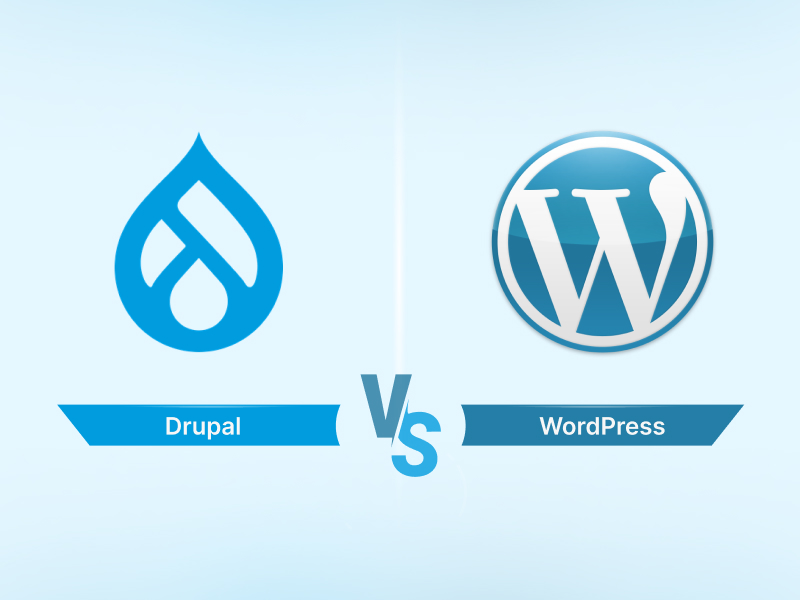Drupal Vs WordPress
Almost all solutions we develop for our clients are built on Drupal. We do provide maintenance services for WordPress websites and we sometimes get clients who come to us with an existing website built on WordPress that we suggest re-developing on Drupal. We've written this article to summarise the reasons why Drupal is often the better choice, and how our clients benefit.
It's important to note that WordPress is perfectly fine for many use cases, the points below focus on our clients and the challenges they face when wanting to do something a little more complicated than WordPress can handle.
1. Enterprise Adoption and Trust:
- Drupal: Drupal's prevalence in the enterprise space is undeniable. Renowned organisations, governments, and large corporations choose Drupal for its robustness and security. The platform's ability to handle complex workflows, extensive user permissions, and intricate data structures makes it a trusted choice for projects with high stakes.
- WordPress: While WordPress is immensely popular and boasts a massive user base, it is often seen as more suitable for smaller websites and blogs. The simplicity that makes WordPress accessible to a broad audience may limit its efficacy in meeting the stringent requirements of enterprise-level projects.
2. Security Considerations:
- Drupal: Security is a paramount concern for enterprises dealing with sensitive data. Drupal's commitment to security best practices, regular updates, and a vigilant community contribute to a robust defense against potential vulnerabilities. The modular architecture allows for swift updates and efficient patch management, minimising the risk of security breaches.
- WordPress: WordPress, with its widespread usage and extensive plugin ecosystem, can be susceptible to security vulnerabilities. The lower barrier to entry for developers may result in suboptimal security measures, making it a less favorable choice for projects where data integrity is non-negotiable.
3. Scalability and Customisation:
- Drupal: The modular and extensible architecture of Drupal makes it highly scalable. As businesses grow and evolve, Drupal can seamlessly adapt to the increasing complexity of web projects. The customisation capabilities are unparalleled, allowing developers to tailor every aspect of the website to meet the specific needs of the business.
- WordPress: WordPress is known for its simplicity and ease of use, but this simplicity can become a limitation when dealing with intricate business requirements. While the extensive plugin ecosystem offers some level of customisation, it may not match the precision and depth achievable with Drupal.
4. Developer-Friendly vs. Robustness:
- Drupal: Drupal might have a steeper learning curve for developers compared to WordPress, but this learning investment pays off in terms of creating robust and sophisticated websites. The platform empowers developers with granular control over the website's architecture, making it a preferred choice for projects with advanced technical requirements.
- WordPress: WordPress's lower barrier to entry attracts a vast developer community. However, the trade-off is a system that might be more user-friendly for a novice developer but could lack the structural robustness necessary for complex enterprise projects.
5. Performance and Speed:
- Drupal: Drupal's architecture is designed to handle large datasets and serve dynamic content efficiently, making it well-suited for high-traffic websites. Its performance capabilities shine in scenarios where the website demands rapid data processing and retrieval.
- WordPress: While WordPress can deliver excellent performance for smaller websites, it may face challenges in maintaining optimal speed and responsiveness when dealing with the complex demands of enterprise-level projects.
If you have a Wordpress website that isnt doing what you want it to do, theres a good chance we can solve your problems. Get in touch if you would like to discuss.





